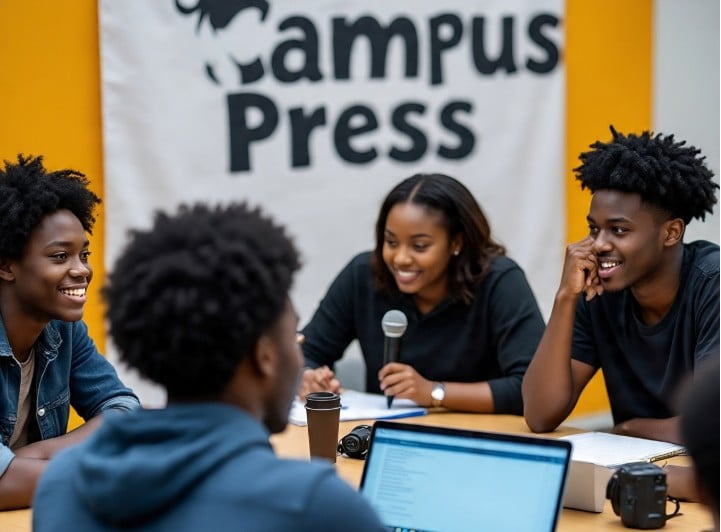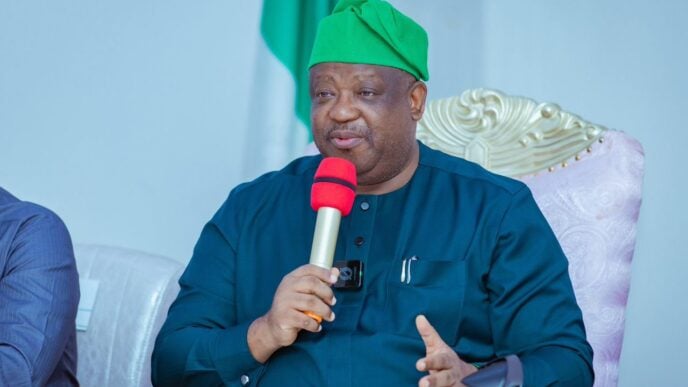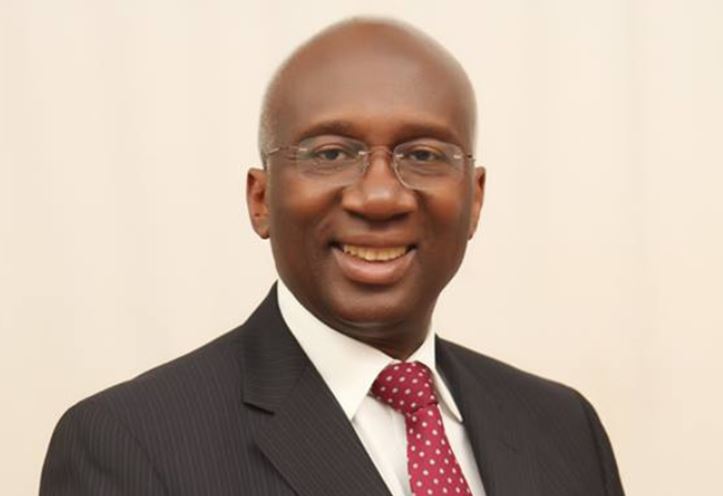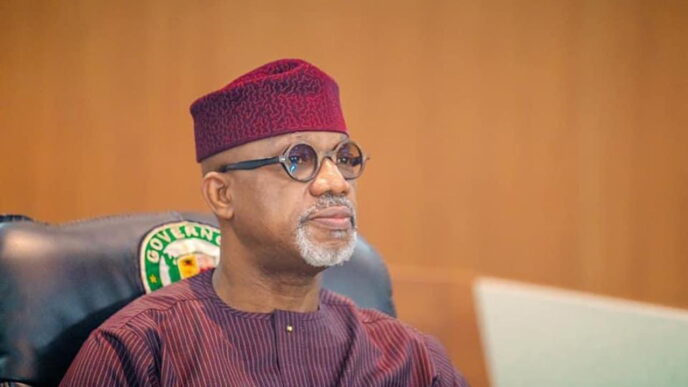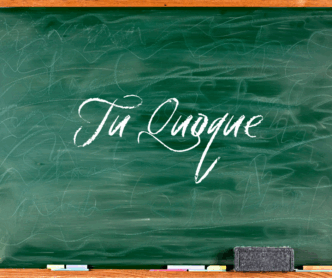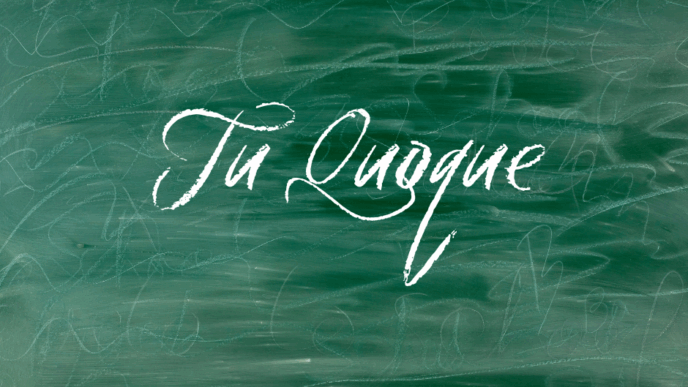Today, we are witnessing a major and alarming trend on our campuses across Nigeria. There is now an escalating issue of student and campus journalists facing disturbing intimidation, harassment and censorship. There is also outright physical attacks simply for reporting on governance failures, security breaches, highhandedness, tuition hikes and corruption perpetrated by some school management
Original intention of higher institutions
Long celebrated as crucibles of intellectual freedom and democratic discourse, Nigeria’s higher education institutions are now at the epicentre of a troubling rollback of press freedom. A clear and unmistakable sign is that there is a climate of fear and control which mirrors the broader national trajectory, where legal instruments and extra-legal coercion alike are being marshalled to constrict the space for independent journalism and silence dissenting voices.
From east to west, north to south within Nigeria campuses, student journalists exposing institutional malpractice, unsafe accommodations, electoral irregularities, and staff misconduct are increasingly subjected to punitive actions.
Advertisement
Why campus press freedom is crucial
Campus press run majorly by campus journalists has been and continue to be the foundation of the press giants we have today in Nigeria. Campus journalists, mostly students, help to preserve the sanity and raise accountability discourse within the higher education institution communities.
Their early warning reporting on student welfare, safety and perceived injustice continue to reduce inequality within the system. Though we must acknowledge that like what obtains in the larger society, a few of them engage in unethical practices out of youthful exuberance and the need to break the news first. But the occurrence of this is slowing down as many NGOs now invest in training this next generation and young journalists who are being nurtured in these academic communities.
Advertisement
The crackdown on press freedom within Nigerian higher institutions does not only have a negative effect on the future of journalism in Nigeria, as many student practitioners are becoming weary and giving up, but the impact continues to discourage whistleblowers and encourage corrupt practices as offenders get away.
Tell tales are everywhere
While the crackdown did not start today, the recent events are worrisome. Early this year, Ogunshile Olanshile, president of University of Ibadan’s campus journalism association, was harassed and assaulted with his colleague while covering the swearing in of newly elected student union government executives despite the fact that they had an official invitation. A few weeks later, two students who were involved in the ‘fees must fall’ advocacy in the same university were expelled.
Campus journalists express mixed feelings as experience differ
Advertisement
In conversations with campus journalists across the nation, there is palpable fear among the majority as the crackdowns could extend beyond limit. Many of those who agreed to share their experiences requested anonymity because of fear of persecution.
A voice from University of Benin, who requested to be anonymous says: “The state of press freedom at UNIBEN, and in many Nigerian campuses, remains precarious. While student press organisations like ACJ UNIBEN operate with full constitutional independence, this freedom is often tested whenever a story challenges authority or exposes sensitive issues within departments or the university administration.”
The source concluded: “The university tolerates student journalism. But in practice, it tends to become less tolerant the moment campus journalists report on allegations involving powerful individuals, especially those close to the management.”
In Uthman Dan Fodio University Sokoto (UDUS), the situation is not different. Any form of story the management feels constitutes reputational damage, especially those that are published in national newspapers, often earns the student a summon. “I have had issues on some of my published articles with the management,” says a student journalist at the institution.
Advertisement
At the University of Port Harcourt, a campus journalist who requested anonymity said: “The press is slightly being controlled, though many of the stories which the university does not feel threatened by are allowed to pass.”
Another campus journalist from University of Jos who also sought to be anonymous said: “We used to have a strong campus press known as “UniJos Echo;” which was very open and direct about issues but our new vice-chancellor has banned any activities of the press within the university.”
Advertisement
A student from Cross State university of Technology, now University of Cross River, said: “Student journalists, while doing their jobs, are often confronted with challenging authority. This comes with reprisal.”
Ogunshile, from the University of Ibadan, said: ‘The situation is worrisome as attacks on press freedom within our community are increasingly hostile.”
Advertisement
At the Obafemi Awolowo University, the situation is slightly different. According to Adedoyin Oguntade, a campus journalist, “acts of repression from the management is minimal. The management does not make the habit of clamping down on press freedom here.”
David Tijesuni of the University of Ibadan, Abeokuta campus, says: “Here, press freedom is endangered. The harassment is not only limited to school management. Even the student union executives are involved. Due to admonition from senior colleagues that “no story is worth your life”, campus journalists now employ diplomacy.”
Advertisement
Intimidation protocol used by school management
Aside from the fear of expulsion, the university often demands that some reports be taken down not because of inaccuracy, but due to “procedural reasons that were never formally explained,” says a student journalist from the University of Benin. Another tactic is that universities do not encourage the existence of campus journalism at all. This is the case in many private universities and some state or federal universities.
In many states and private higher institutions, only departmental publications which are highly regulated are allowed. No campus press or student journalism associations are allowed.
School management’s concerns
No house owners want his building set on fire. In many higher institutions in Nigeria, the leadership has their reasons for limiting press freedom. Some of the common concerns have to do with reputational damage that may affect the institution’s ratings.
Also, it is very clear that student governance within the higher institutions are largely factionalised and politicised and there are no guarantees this may not affect student journalists reporting, so it is expedient to monitor such.
Some university journalism educators, who had held administrative positions or are still holding one, shared their views on the issue.
Dr Olorunyomi of Yaba College of Technology said: “Freedom of expression is minimal in my institution. There are publications produced by students but I ensure that stories are not against the interest of the management.” When asked if there is management support for campus press, she said: “No. We have a press club but it’s not effective. We are planning to resuscitate it.”
Dr Oyeleye Abiodun, a former HOD of mass communications department at Caleb University, a privately owned university, said: “Our school does not have a student-led, independent publication system. What we have are training publications run by the department.” When asked why campus press led by students are not allowed or encouraged, Dr Oyeleye opted to remain silent.
Media C-suite who are ex-campus journalists and media rights advocates kick
We reached out to Lekan Otufodunrin, a media c-Suite leader and executive director of MDCN. He said: “The suppression of campus journalists undermines students’ professional development, violates their fundamental rights to expression, and discourages future careers in journalism.” On what is the best way forward, Lekan Otufodurin suggested that “school management should embrace transparency, due process, and open communication rather than censorship, noting that accountability strengthens institutions rather than weakens them.”
Kabir Adejumo had this to say: “Silencing campus journalists undermines universities’ core mission to nurture critical thinking, accountability, and civic responsibility, instead fostering fear and self-censorship. When institutions meant to model transparency resort to censorship and intimidation, they not only erode press freedom but also weaken the democratic values they should be instilling in future leaders.”
AbdulRasheed Hammad, an investigative freelance journalist and lawyer, said: “This climate of fear created by higher institutions management against campus Press freedom will discourage campus journalists from pursuing hard-hitting reporting, undermine press freedom and transparency within higher institutions.”
Ayodele Longe, a lawyer with Media Rights Agenda, said the “growing clampdown on campus journalism in Nigeria higher institutions erodes democratic values, silences student voices, and undermines the training ground for the country’s future watchdog journalists. It stresses that protecting student journalists is essential to safeguarding press freedom, transparency, and Nigeria’s democratic future”.
Consequences and conclusion
Silencing campus media undermines transparency and fosters governance failures that jeopardise student safety and the overall quality of education. Such repression normalises attacks on free expression, eroding the confidence of future journalists and weakening the culture of public debate across society.
Views expressed by contributors are strictly personal and not of TheCable.

